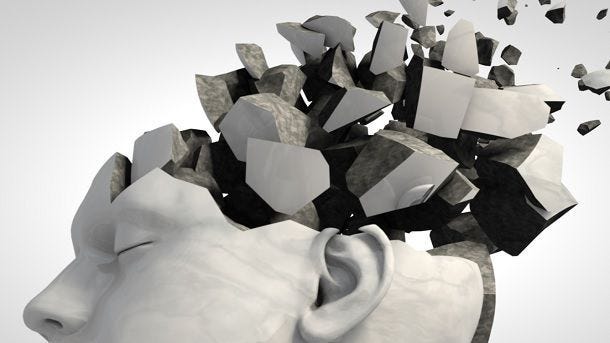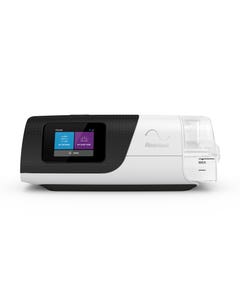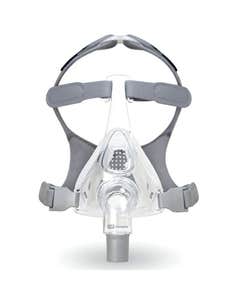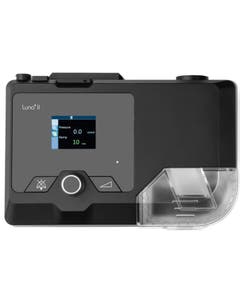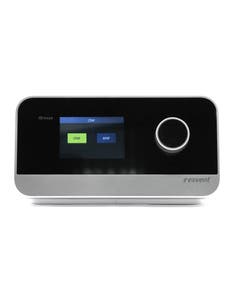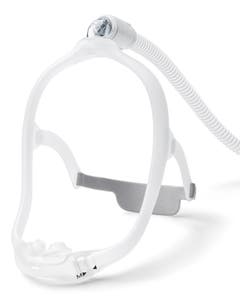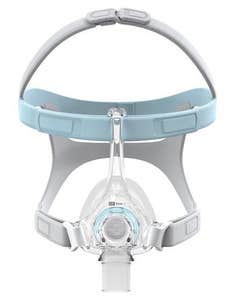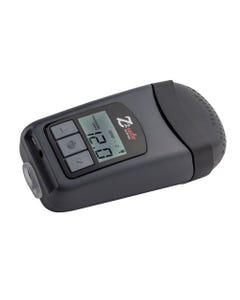How Does Sleep Apnea Cause Memory Loss?
Recent studies have shown that treating obstructive sleep apnea (OSA) can help improve memory in older patients experiencing cognitive decline due to dementia.1 While sleep loss is one of the symptoms of dementia in some patients, the increasing decline of brain health from sleep deprivation may worsen the symptoms of dementia, creating a viscous cycle that accelerates overall cognitive degradation.
What is Sleep Apnea?
Obstructive sleep apnea or OSA causes you to repeatedly stop and start breathing while you sleep. When throat muscles overrelax during sleep they close up the airway and cause the disrupted breathing. This frequent disruption of natural sleep can affect your health both mentally and physically.
How Sleep Apnea Affects Memory
The regular interruption of healthy sleep from sleep apnea episodes leaves many patients drowsy during the day because they have not sleep well at night. This on-going experience of sleep deprivation begins to impact brain health. Cognitive functions such as concentration and memory are the first to be compromised. There is increasing recognition of the important role sleep plays in our brain health. Growing evidence suggests disturbed sleep may increase the risk of developing dementia.
Does Sleep Apnea Increase the Risk of Dementia?
While there is no treatment or cure for dementia, researchers strive to develop other methods for slowing the effects of dementia on patients. Mild cognitive impairment is the stage between the expected cognitive decline of normal aging and the more serious decline of dementia.
In mild cognitive impairment, the individual, family, and friends notice cognitive changes, but the individual can still successfully carry out everyday activities. Mild cognitive impairment is associated with an increased risk of developing dementia in subsequent years.
Researchers believe this is the optimal time to intervene to help prevent a future dementia diagnosis. Finding new ways to slow cognitive decline in those with mild cognitive impairment is therefore important.
Why is Sleep So Important for Brain Health?
Sleep helps our brains effectively store learned information and memories. These processes can occur across all the different stages of sleep, with deep sleep (also known as stage 3 or restorative sleep) playing a key role. Sleep loss reduces the brain’s ability to store memory.
The glymphatic system, or the waste management system of the brain, is highly active during sleep, especially during deep sleep. This process allows waste products, including toxins, our brain has built up during the day to be cleaned out. Sleep loss allows a buildup of these waste products which can begin to cloud healthy cognitive function.
How Does Sleep Apnea Treatment Help Memory?
Sleep apnea treatment prevents the frequent episodes that interrupt healthy sleep. By helping improve consistent and healthy sleep patterns, sleep apnea treatment allows the brain to effectively begin storing new memory and eliminating toxic waste products that can affect cognitive performance.
How is Sleep Apnea Treated?
The most common sleep apnea treatment uses PAP (positive air way pressure) to reduce the frequency of sleep apnea episodes at night. A CPAP machine flows pressurized air through a tube and into the mask of the patient as they sleep. The constant air pressure keeps the airway open and prevents the disruptive events that cause sleep apnea episodes and interrupt healthy sleep.
CPAP machines offer varied features that help patients practice CPAP more comfortably.
- Standard CPAP machines deliver a fixed pressure throughout the night
- Auto-adjusting CPAP auto adjusts to deliver the minimum pressure needed to keep the airway open
- Portable CPAP machines are compact for easy travel
- Bilevel & VPAP machines deliver two separate pressures for inhalation and exhalation.
How To Get Tested for Sleep Apnea
Speak to your doctor about getting tested for sleep apnea. In-lab sleep studies are one way to test for sleep apnea. In-lab studies require an overnight stay in a sleep lab to be evaluated. For convenience, you can also take a sleep apnea test at home. Sleep Care Online offers at-home sleep tests that deliver the same accurate results as in-lab tests, but in the comfort of your own home.
If you are new to CPAP therapy and would like assistance ordering a machine, mask, or other products, our team at The CPAP Shop would be happy to help! Give us a call at 866-414-9700 today.
References
- Hoyos, Camilla. Neuroscience New. Treating Sleep Apnea Can Improve Memory in People With Cognitive Decline. May 22
Recent studies indicate that treating obstructive sleep apnea (OSA) can help improve memory in older patients experiencing cognitive decline due to dementia.1 While sleep loss is one of the symptoms of dementia in some patients, the increasing decline of brain health from sleep deprivation may worsen the symptoms of dementia, creating a vicious cycle that accelerates overall cognitive degradation.
The long-term health impact of obstructive sleep apnea (OSA) may be more damaging than once thought. We already know that untreated sleep apnea is linked to heart disease, stroke, diabetes, and depression, to name a few. However, new research suggests that untreated sleep apnea may cause significant deficits in the cerebral cortex, or gray matter, where most brain activity takes place.
What is Gray Matter?
Gray matter refers to unmyelinated neurons and other cells of the central nervous system. It is present in the brain, brainstem, cerebellum, and throughout the spinal cord. In particular, gray matter is present in regions of the brain involved in muscle control and sensory perception, such as seeing and hearing, memory, emotions, speech, decision-making, and self-control. In short, gray matter is vital to daily mental functions.
How Sleep Apnea Affects Memory
The regular interruption of healthy sleep from sleep apnea episodes leaves many patients tired during the day because they do not sleep well at night. This ongoing experience of sleep deprivation begins to impact brain health. That's because the pauses in sleep prevent your body from supplying enough oxygen to the brain. This results in a person not being able to recall memories and conversations, as their brain could not properly consolidate memories as they sleep.
When not getting enough sleep and the brain gets negatively affected, cognitive functions such as concentration and memory are the first to be compromised. There is increasing recognition of sleep's important role in our brain health. Growing evidence suggests that disturbed sleep may increase the risk of developing dementia or Alzheimer's Disease.
Additionally, while it is hard enough to not remember things, feelings of anxiety or depression may also arise because of the difficulty to remember specific details or memories.
Does Sleep Apnea Increase The Risk Of Dementia?
While there is no treatment or cure for dementia, researchers strive to develop other methods for slowing the effects of dementia on patients. Mild cognitive impairment is the stage between the expected cognitive decline of normal aging and the more serious decline of dementia.
In mild cognitive impairment, the individual, family, and friends notice cognitive changes, but the individual can still successfully carry out everyday activities. Mild cognitive impairment is associated with an increased risk of developing dementia in subsequent years.
Researchers believe this is the optimal time to intervene to help prevent a future dementia diagnosis. Finding new ways to slow cognitive decline in those with mild cognitive impairment is therefore important.
Does Sleep Apnea Cause Alzheimer's?
Poor sleep can certainly contribute to the onset of Alzheimer's, and sleep apnea is associated with several other diseases, including Alzheimer's.
As mentioned, when a person with sleep apnea stop breathing throughout the night, blood oxygen levels will reduce. Additionally, sleep apnea could potentially have the same biomarker changes that are linked with Alzheimer's. With the help of CPAP therapy to manage sleep apnea, the positive airway pressure prescribed makes someone less likely to develop Alzheimer's.
How Important is Sleep for Your Brain Health?
Sleep helps our brains effectively store learned information and memories. These processes can occur across all the different stages of sleep, with deep sleep (also known as stage 3 or restorative sleep) playing a key role. Sleep loss reduces the brain’s ability to store memory.
The glymphatic system, or the waste management system of the brain, is highly active during sleep, especially during deep sleep. This process allows waste products, including toxins, our brain has built up during the day to be cleaned out. Sleep loss allows a buildup of these waste products which can begin to cloud healthy cognitive function.
How Does Sleep Apnea Treatment Help Memory?
Sleep apnea treatment prevents frequent episodes that interrupt healthy sleep. By helping improve consistent and healthy sleep patterns, sleep apnea treatment allows the brain to effectively begin storing new memory and eliminating toxic waste products that can affect cognitive performance.
How to Get a Sleep Apnea Test
Speak to your doctor about getting tested for sleep apnea. In-lab sleep studies are one way to test for sleep apnea. In-lab studies require an overnight stay in a sleep lab to be evaluated. For convenience, you can also take a sleep apnea test at home. Sleep Care Online offers at-home sleep tests that deliver the same accurate results as in-lab tests but in the comfort of your own home.
To take a free Sleep Apnea Risk Assessment Test, click here.
Treatment For Sleep Apnea
The most common sleep apnea treatment uses PAP (positive airway pressure) to reduce the frequency of sleep apnea episodes at night. A CPAP machine flows pressurized air through a tube and into the mask of the patient as they sleep. The constant air pressure keeps the airway open and prevents the disruptive events that cause sleep apnea episodes and interrupt healthy sleep.
CPAP machines offer varied features that help patients practice CPAP more comfortably.
- Standard CPAP machines deliver a fixed pressure throughout the night
- Auto-adjusting CPAP auto adjusts to deliver the minimum pressure needed to keep the airway open
- Portable CPAP machines are compact for easy travel
- Bilevel & VPAP machines deliver two separate pressures for inhalation and exhalation.
How Can The CPAP Shop Help?
The CPAP Shop offers a variety of high-quality CPAP products, including machines, masks, and more. Our knowledgeable staff would be happy to help you choose products that suit your unique needs. Give us a call at 866-414-9700 today!



